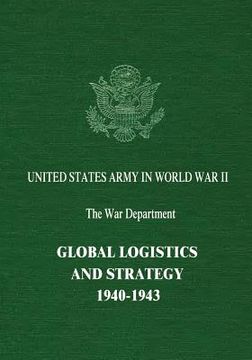Share
Global Logistics and Strategy: 1940-1943
Robert W. Coakley
(Author)
·
Richard M. Leighton
(Author)
·
Createspace Independent Publishing Platform
· Paperback
Global Logistics and Strategy: 1940-1943 - Coakley, Robert W. ; Leighton, Richard M.
Choose the list to add your product or create one New List
✓ Product added successfully to the Wishlist.
Go to My Wishlists
Origin: U.S.A.
(Import costs included in the price)
It will be shipped from our warehouse between
Thursday, July 11 and
Thursday, July 18.
You will receive it anywhere in United Kingdom between 1 and 3 business days after shipment.
Synopsis "Global Logistics and Strategy: 1940-1943"
The present volume, and its successor, depict a massive achievement: the performance by the Army of the task of effecting the orderly assembly, movement, and delivery of great masses of men and matériel throughout the world to meet not only American requirements but also those of the other nations fighting the Axis. The authors show how the demands of this task affected American strategy and how it reacted on the shape and mission of the Army. These volumes present the outlook of the War Department as a whole on this task, rather than that of any one agency or command of the Army. Two other volumes in the same subseries will deal with the Army's procurement of munitions and supplies from that standpoint. The rest of the logistical story will be told in volumes on the Army Service Forces, the seven technical services, and the theaters of operations. Logistical tasks account in large measure for the enormous administrative machinery that the Army developed in the course of the war. Its development, though not a complete surprise, exceeded all anticipations. The demand for service troops seemed insatiable and required repeated revisions of the troop basis. With this went a "proliferation of overhead" in the form of complex controls and higher headquarters that ate up officers needed for the training and leading of fighting troops, drew into the service a multitude of specialists, and confused the chain of command. The trend ran counter to the traditional American belief that the overriding mission of the Army is to fight, a conviction so deep that some commanders, like General McNair, fought to keep the Army lean and simple. In World War II they lost this fight.
- 0% (0)
- 0% (0)
- 0% (0)
- 0% (0)
- 0% (0)
All books in our catalog are Original.
The book is written in English.
The binding of this edition is Paperback.
✓ Producto agregado correctamente al carro, Ir a Pagar.

